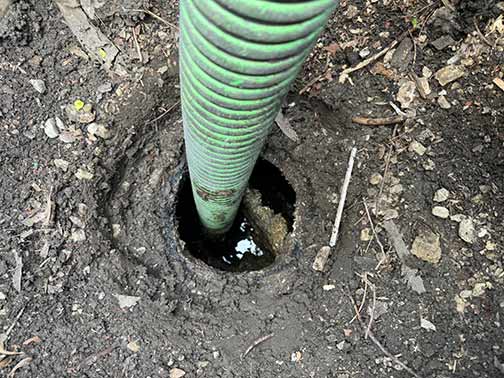
Septic systems are a home-based and scaled-down equivalent of municipal sewage treatment plants. They do the same work as the large facilities found in cities and like municipal sewage treatment plants, septic tank systems need to be properly maintained, explains American Dream Management.
Septic tank systems need more maintenance than large-scale waste treatment facilities because they are not as resilient as their bigger cousins. Minor problems caused by misuse of the home’s toilets or sewer lines can cause irreparable damage to a septic system.
In this post, we discuss the dos and don’ts of septic system maintenance. Below you will find the best practices for maintaining the structural integrity and function of your septic system. Follow the rules in this post if you want to ensure the system’s longevity.
The dos and don’ts of septic system maintenance
Dos
Use water-conserving fixtures and appliances
Low-flow plumbing fixtures and appliances, such as toilets, showerheads, faucets and washing machines help to reduce the water that enters the septic system in a year. It lessens the pressure on the septic system; ensuring it is never overwhelmed by excess water.
Use biodegradable cleaners
Toxic substances impair the operation of a septic system by killing off the beneficial organisms necessary for its function. Examples of chemicals that do this are household cleaners, bleach and detergents. To safeguard the septic system, use only biodegradable detergents in your laundry and kitchen.
Spread your laundry and only wash full loads
Your septic tank can malfunction if too much water is released into the system too fast. When doing your laundry, instead of doing everything in a single day, a good practice is to spread it out over many days. Also, ensure you always wash a full load.
Remove trees with large root systems
Do not plant trees and shrubs with large or invasive root systems around the leach field. Tree roots can intrude into the pipes in the leach field or clog the distribution system. Tree roots can also damage and penetrate the tank, causing leaks and other problems.
Pump the septic system regularly
Septic tanks should be pumped every two to three years or as soon as sludge and scum exceed one-third of the depth of the tank. If this is not done, solids that should be retained by the tank will find their way into the leach field. That will result in premature system failure and expensive repairs.
Keep detailed records
Keep careful records of all septic system maintenance tasks, including dates of the septic pumping service, the depth of sludge inside the tank, and the name of the expert who pumped the system. Keeping detailed records of the key system parts will also help your maintenance.
Inspect the system every year
To ensure the efficient function and longevity of your septic tank system, it is recommended that you inspect the system at least once a year. This inspection should be done by a licensed and experienced professional.
Don’ts
Don’t put these items into your toilet
Most items labeled “flushable” should never enter your toilet. They will find their way into the septic system and damage it. Some items to avoid include disposable diapers, paper towels, sanitary napkins, tampons, cigarette butts, latex condoms, wipes, antibacterial soap and lots more.
Do not dump FOGs into your drains
Fats, grease, and oil will clog your drain field. Dispose of used grease by putting it inside a trash can or elsewhere, instead of pouring it down the sink. Food waste that should not enter the septic system includes coffee grinds, eggshells, starchy foods, and stringy vegetables.
Do not use a garbage disposal
The benefits you get from a garbage disposal are minimal compared to the harm it can do to your septic tank system. By grinding food waste, garbage disposals increase the accumulation of solids within the septic tank. Only use a garbage disposal if it discharges into a dedicated trash tank.
Don’t allow rainwater into the tank
Water from features like roof gutters, downspouts, and surface runoff must not be allowed to enter the septic tank. Drainage water will overwhelm your septic system if it is allowed to flow into the tank.
Do not use septic tank additives
They are unnecessary for proper septic system functioning. Septic additives even encourage sludge and scum to be discharged into the leach field. If additives can escape into the leach field, they will often pollute groundwater.
Don’t drive heavy vehicles on the leach field
Keep heavy vehicles and equipment at least six meters away from your leach field. Cars, trucks and tractors will place enough pressure on a buried septic tank to crack it. Do not pave or build on your leach field or near the septic tank.
Lastly, only work with licensed and experienced professionals when pumping, maintaining, or repairing your septic tank system. Many septic tank problems happen due to incorrect installation and inadequate system maintenance by unqualified persons.


